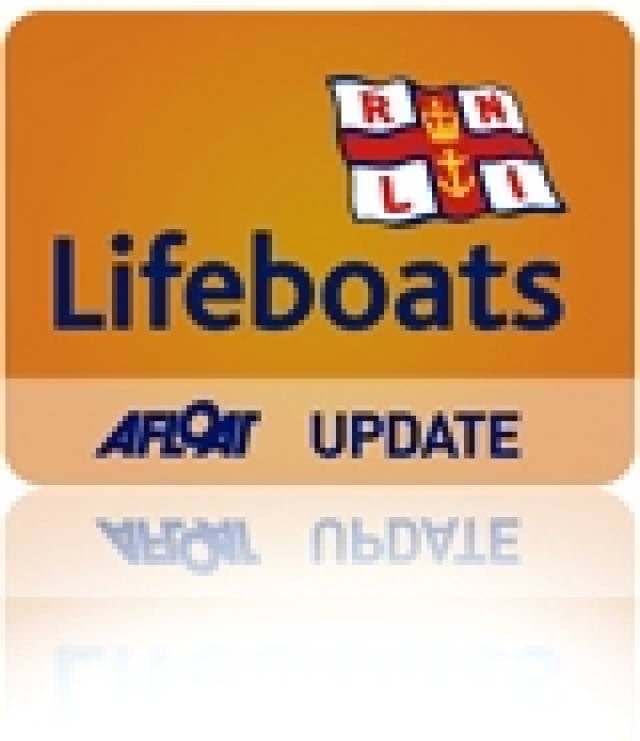#rnli – Lifeboat crew with Fenit RNLI and three local families worked together last night (Tuesday 26 March) to save the life of a stranded dolphin in the Kerry town. The mammal was running out of time after he was washed up into a deserted channel on a remote beach on Fenit Island and was not able to return to the water.
In a rescue operation that involved members of the Egan, Tobin and McCarthy families, three RNLI volunteer lifeboat crew, an inshore lifeboat and a jeep, the dolphin was given a fighting chance and was safely deposited by the lifeboat crew out in deep water.
The drama began when local woman Breda McCarthy was out walking her dog on Fenit Island when she came upon the stranded dolphin. It was lying in a small channel quite a few metres from the sea. It is believed the dolphin had swam in at high tide a few hours earlier and had got cut off from the sea. Mrs McCarty contacted family members who came down to see if they could return the dolphin to the water. Unfortunately this was not possible as the mammal kept to the shallow waters and would not return to the sea.
With their concern growing the families contacted Ger O'Donnell, Fenit RNLI Lifeboat Operations Manager to see if the RNLI could assist them. Ger in turn made contact with Valentia Coast Guard who put him in contact with a dolphin expert. After discussing the situation with the expert it was decided that the best course of action for providing a safe outcome would be to transport the dolphin down to the harbour and then transport it by RNLI lifeboat out to sea to be released.
The dolphin was carefully wrapped up and transported by jeep to the harbour where RNLI lifeboat crew were already waiting in the inshore lifeboat to launch. They took the dolphin onboard the lifeboat and proceeded immediately out to sea. On releasing the dolphin into the water the lifeboat crew watched as the mammal slowly started to swim around the lifeboat in ever increasing circles, gaining confidence as it went. Once they were satisfied the dolphin was able to safely swim away, the lifeboat crew returned to shore.
Commenting on the unusual callout Fenit RNLI Lifeboat Operations Manager Ger O'Donnell said, "This was not your run of the mill rescue for the lifeboat crew. We were very anxious that we did everything right and gave the poor thing the best chance of survival. I want to thank everyone involved. It was a real community effort, from the local families, the RNLI crew and the Coast Guard, who were able to put us in touch with the expert advice we needed. It was almost as if the dolphin knew we were working to save him and I sincerely hope that he made it and we can count him as another life saved."
Local woman Mary Tobin, whose son Michael captured some photos of the incident said, "It was great to see everyone working together. I can't thank them enough, we were so worried the poor creature was not going to make it. When my sister Breda found him it was clear that he was in a bad way and his breathing was very laboured. We knew that with the RNLI on our doorstep that we would have a good shot at a successful outcome.
































































